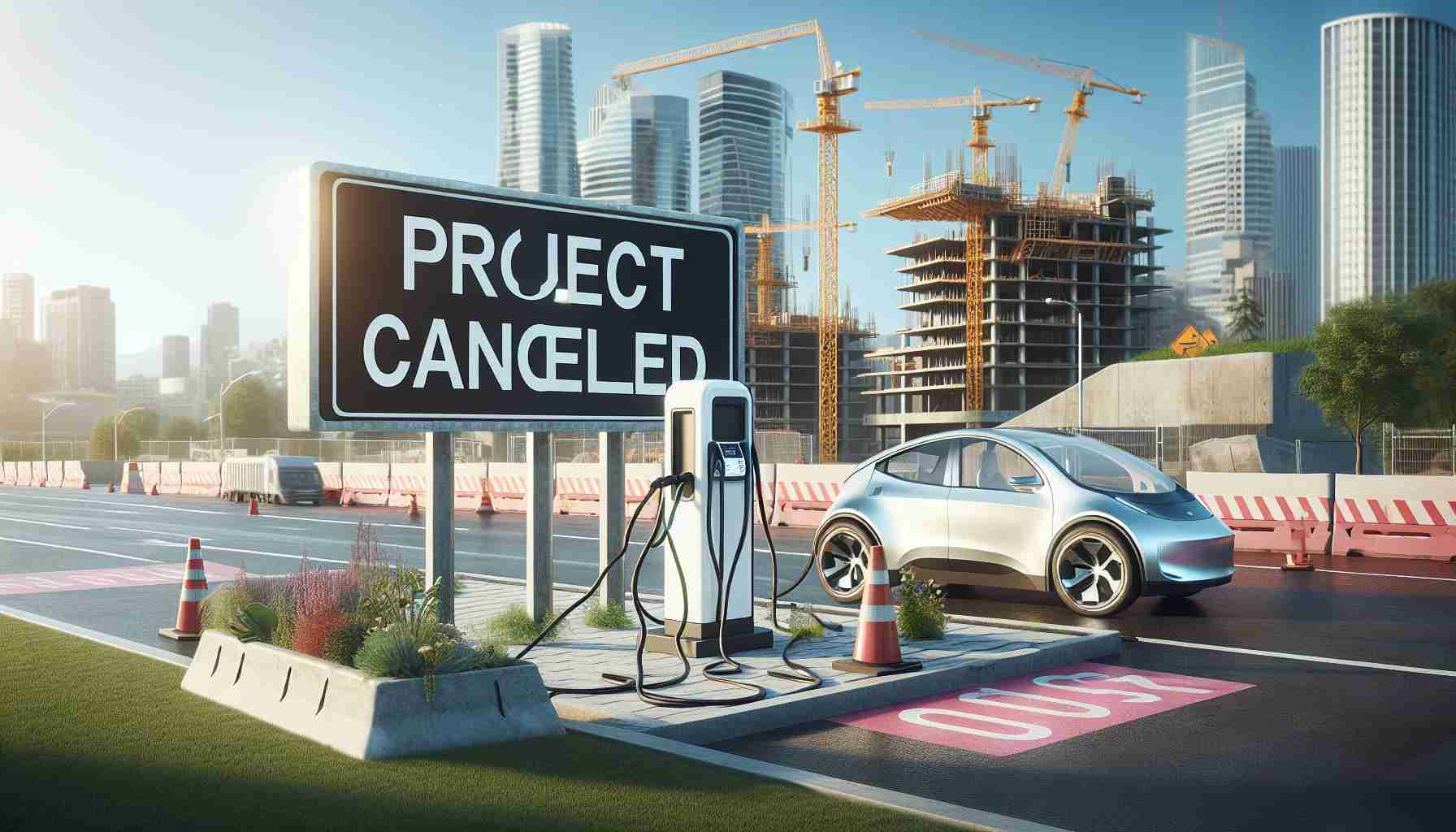The End of BT’s Ambitious EV Charging Initiative
In a surprising turn of events, BT has terminated its pilot program aimed at transforming street cabinets into electric vehicle (EV) charging stations just a year after its inception. The initiative, launched with great enthusiasm, involved converting outdated cabinets into charging points for EV users across the UK.
Initially, BT introduced the first unit in East Lothian, Scotland, in February of the previous year, with hopes to deploy an additional 600 units nationwide. The ambition was to repurpose over 60,000 of BT’s street cabinets, capitalizing on their dwindling relevance in an era where full fibre infrastructure is being installed directly into homes.
Despite the initial plans, progress stalled significantly after the first installation. While no official reason has been provided for the cancellation, financial constraints appear to be a significant factor. BT’s recent financial reports revealed a workforce reduction of 2,000 employees and a dip in profits by 10%, all attributed to decreasing revenues and rising costs.
Furthermore, the increase in National Insurance contributions is projected to add £100 million to BT’s expenses annually. A spokesperson from BT emphasized their commitment to understanding EV charging challenges while hinting at a renewed focus on enhancing connectivity solutions for EV users instead of rolling out more charging stations.
Repercussions for the EV Landscape and Future Mobility
The abrupt termination of BT’s electric vehicle (EV) charging initiative echoes broader implications for societal infrastructure and environmental sustainability. As urban centers increasingly pivot towards greener transportation options, the diminishing support for innovative charging solutions could stall progress towards achieving ambitious sustainability goals. Reliable charging access is critical not only for reducing dependency on fossil fuels but also for boosting consumer confidence in electric vehicles.
In a culture that prizes innovation, the abandonment of such an ambitious project highlights a potential cultural shift within corporations, where immediate financial viability increasingly trumps long-term environmental responsibility. This inertia could contribute to a significant slowdown in EV adoption rates, ultimately hindering the United Kingdom’s climate commitments outlined in various international accords.
From an economic standpoint, the fallout could extend beyond BT, affecting the entire EV ecosystem, including manufacturers, infrastructure developers, and consumers. A decrease in charging station availability can weaken the market, as prospective buyers may hesitate to transition to EVs due to concerns over range anxiety and accessibility.
Additionally, the long-term significance of such corporate decisions invites scrutiny into the strategic prioritization of resources in the face of mounting ecological challenges. As companies like BT navigate financial instability, stakeholders must advocate for the sustained investment in renewable technologies, ensuring that the pursuit of a greener future does not wane amidst corporate restructuring and economic pressures.
The Unexpected Halt of BT’s EV Charging Vision: What Lies Ahead?
The End of BT’s Ambitious EV Charging Initiative
In a surprising development, BT has officially terminated its pilot program that aimed to transform street cabinets into electric vehicle (EV) charging stations, a project that had captured attention just a year ago. This ambitious initiative was intended to repurpose outdated street furniture into much-needed charging points to bolster the UK’s EV infrastructure.
Background of the Initiative
Launched in February the previous year, the pilot began with the installation of a single unit in East Lothian, Scotland, and was projected to expand to 600 units nationwide. The overarching goal was to leverage over 60,000 of BT’s street cabinets, which were becoming increasingly redundant as the company focused on rolling out full fibre connectivity directly to homes.
Factors Leading to Cancellation
Despite the initial enthusiasm and plans for a widespread rollout, the project faced significant hurdles. Although BT has not provided an official reason for the cancellation, financial challenges seem to have played a pivotal role. Recent financial reports indicated a workforce reduction of approximately 2,000 employees and a 10% drop in profits, attributed to declining revenues and rising operational costs.
Additionally, BT anticipates an increase in National Insurance contributions, which is estimated to add around £100 million to its annual expenditures. Given these financial pressures, the company is pivoting its strategic priorities toward improving connectivity solutions rather than expanding its EV charging infrastructure.
Potential Alternatives and Future Focus
Instead of pursuing the EV charging project, BT is signaling a renewed commitment to enhancing connectivity for EV users. This decision aligns with broader industry trends where better connectivity plays a crucial role in the increasing use of EVs. Key areas of focus may include:
– Smart Charging Solutions: Implementing technology that allows for more efficient charging, responding to power demand in real-time and integrating with energy markets.
– Enhanced Connectivity: Increasing the networks that support navigation and in-car services for EV owners, such as route optimization for charging station locations.
– Partnerships: Collaborating with energy companies and infrastructure partners to create a more cohesive charging network.
Pros and Cons of BT’s Decision
Pros:
– Enables BT to refocus resources on improving core services.
– Potential for stronger integration of connectivity with EV usage features.
– Opportunity to explore innovative technological solutions for smart charging.
Cons:
– May lead to a shortage of accessible charging stations in urban areas.
– Could slow down the overall adoption rate of electric vehicles in the UK.
– Loss of public confidence in BT’s commitment to sustainability initiatives.
Market Implications and Insights
The cancellation of BT’s EV charging initiative might reflect a larger trend in which telecommunications companies reassess their roles in the climate change arena. Many are grappling with how to balance operations, costs, and sustainability efforts.
Analysts suggest that companies in the FTSE index should prioritize customer-centric innovations that contribute to EV infrastructure, ensuring they balance profitability with social responsibility. The future may see a realignment of strategies with a greater emphasis on collaborations, boosting infrastructure developments through strategic partnerships rather than standalone initiatives.
Conclusion
While BT’s ambitious program to transform street cabinets into EV chargers has come to an abrupt end, the implications of this pivot could be far-reaching. As the company shifts focus, stakeholders will keenly observe how BT navigates this terrain and integrates technology and connectivity to serve the evolving needs of EV users. The future may still hold promising developments in EV infrastructure, albeit through a different route.
For more insights on technology and sustainability, visit BT.













